Meldrum Street location will have a more ‘restaurant-style’ atmosphere, permanent showers for guests as part of wider plan
DETROIT — Guests and passersby might soon notice a few changes to the Capuchin Soup Kitchen on Meldrum Street in Detroit’s east side.
The familiar stucco cladding has been removed, temporarily exposing an original brick façade to the building's exterior, and construction crews are expanding the size of the windows to let in more natural light.
But that's just the beginning. By the time work is done, Bro. Gary Wegner, OFM Cap., believes guests will enjoy a whole new soup kitchen dining experience.
Don't miss another story
Did you know you can get Detroit Catholic's latest daily or weekly articles delivered to your inbox? It's easy and free to sign up.
Construction on the Capuchin Soup Kitchen on Meldrum is part of a wider renovation plan by the Capuchin Franciscan Province of St. Joseph that's recently included a 5,000-square-foot expansion and dramatic facelift for the Solanus Casey Center following a $20 million gift from the A.A. Van Elslander Foundation. Future plans include a new bakehouse for the Capuchins' job-training ministry, On the Rise Bakery, and expansions to the soup kitchen's Conner Street location.
Bro. Wegner, executive director of the Capuchin Soup Kitchen, said the goal is to give the soup kitchen more of a welcoming, restaurant-style atmosphere than a stale, industrial kitchen that reminds him of “an employee breakroom.”
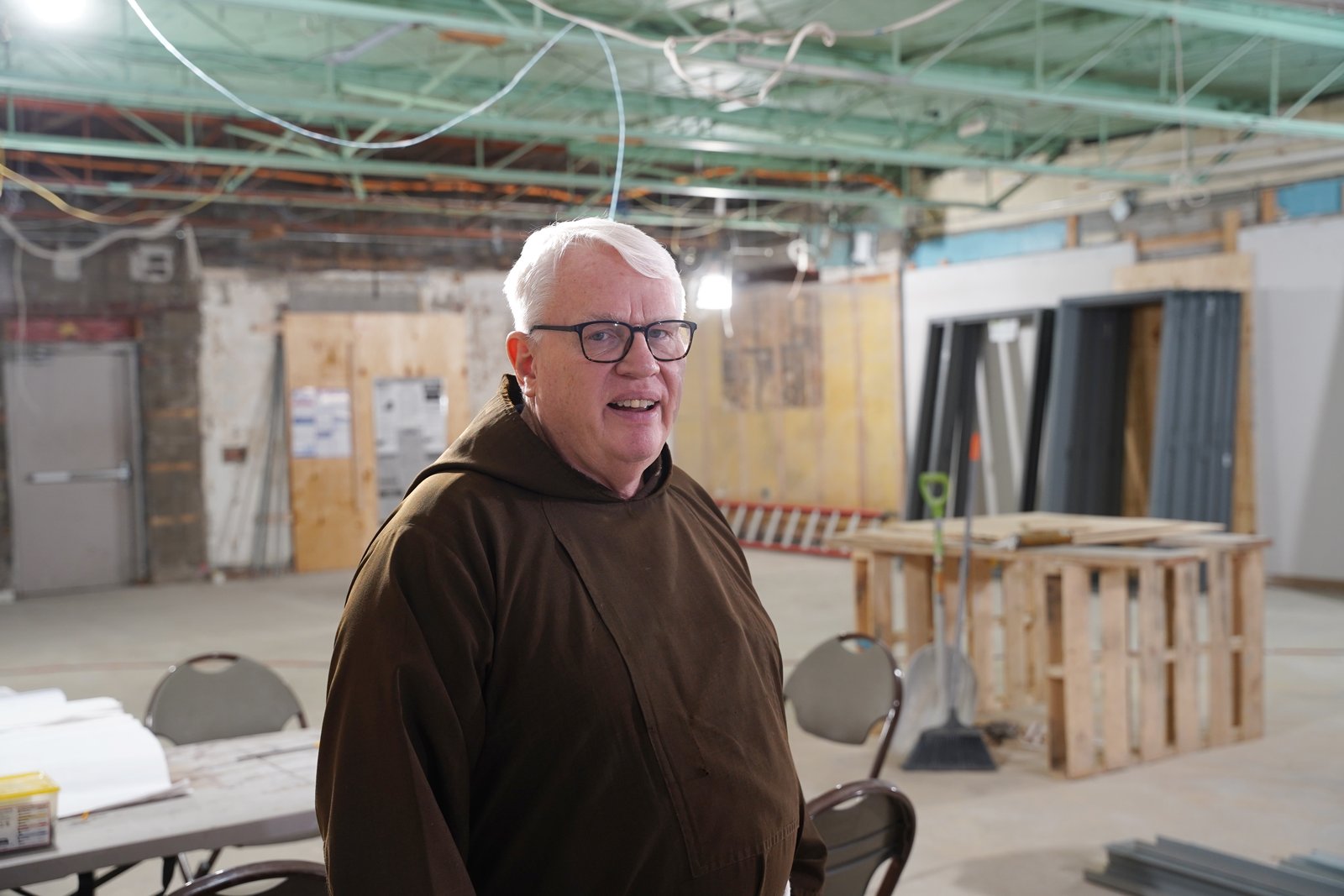
“We’re hoping that the look will be more like a restaurant with the lighting being more recessed, bigger windows for more natural lighting, so you can’t just look in, but can now look out,” Bro. Wegner told Detroit Catholic. “The windows will be lowered, not blocked glass, but windows you can look out. And the server area will make more sense for volunteers and staff to serve our guests.”
It's not just the soup kitchen's physical façade that's getting a refresher. Once complete, Bro. Wegner imagines a whole new service style for the soup kitchen. Rather than waiting in line to get their food, guests will be able to sit down and volunteers will come out to take their order from one of the items on the menu.
Construction began earlier this summer, but the vision for the project was born when Bro. Wegner took a tour of the kitchen in March 2021, months before he became its executive director, particularly noting the temporary shower facility in the kitchen’s parking lot that had lived past the term “temporary.”
“I remember visiting here and the first thing I said to Bro. Tien (Dinh, assistant executive director of the Capuchin Services Center) was that shower area is inadequate and we will be changing it,” Bro. Wegner said. “It’s not a criticism of my predecessors; they made do and met an immediate need. They put in a shower program in the only place they could because that was opposite the bathroom, and that’s where the plumbing was.”
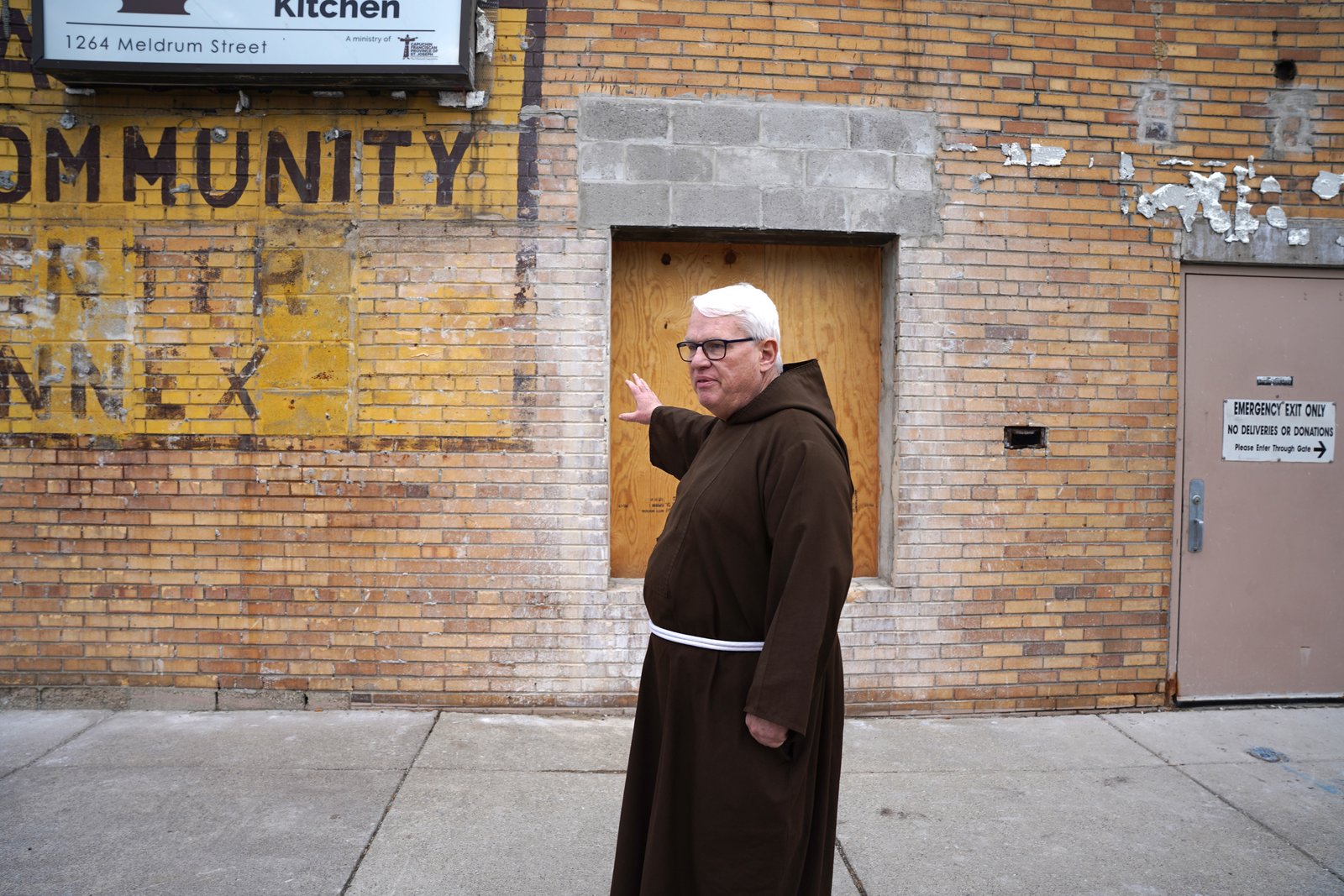
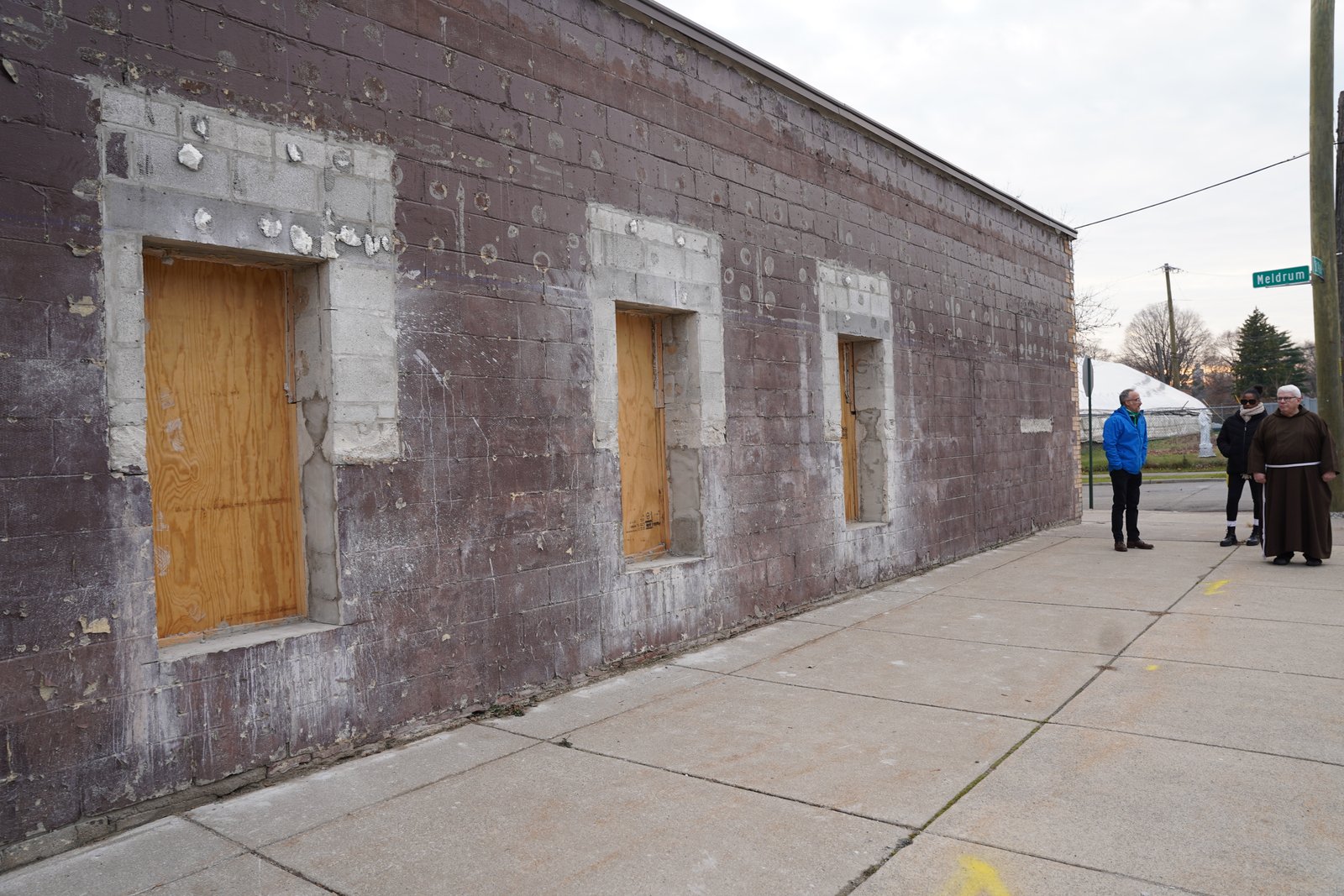
The new permanent showers will be located inside the soup kitchen on the first floor, giving guests more privacy and adding to the welcoming nature of the renovated kitchen. Likewise, the temporary facility has been moved to the Conner Street location, where it will be in use until that location undergoes renovations.
The remodel is designed to give the Capuchin Soup Kitchen on Meldrum a more intentional design to be of greater service to its guests, staff, volunteers and outside groups such as Alcoholics Anonymous and Narcotics Anonymous to use the space.
The Meldrum location was purchased by the Capuchins in 1978, originally in use as the Capuchin Services Center, called “the annex.”
The Capuchin Soup Kitchen got its start in 1929, located where the Solanus Casey Center is today on Mount Elliott, under the leadership of Fr. Herman Buss, OFM Cap. In the early days, Capuchin priests and brothers — including Blessed Solanus Casey — worked to feed thousands of unemployed Detroiters in the thralls of the Great Depression.
When the Solanus Casey Center opened in 2002, the soup kitchen moved to the Meldrum location and another location on Conner Street was added.
Before the soup kitchen moved to Meldrum, the Capuchin Services Center served as a food bank and clothing closet. The services center today is located at Mount Elliott and Interstate 94.
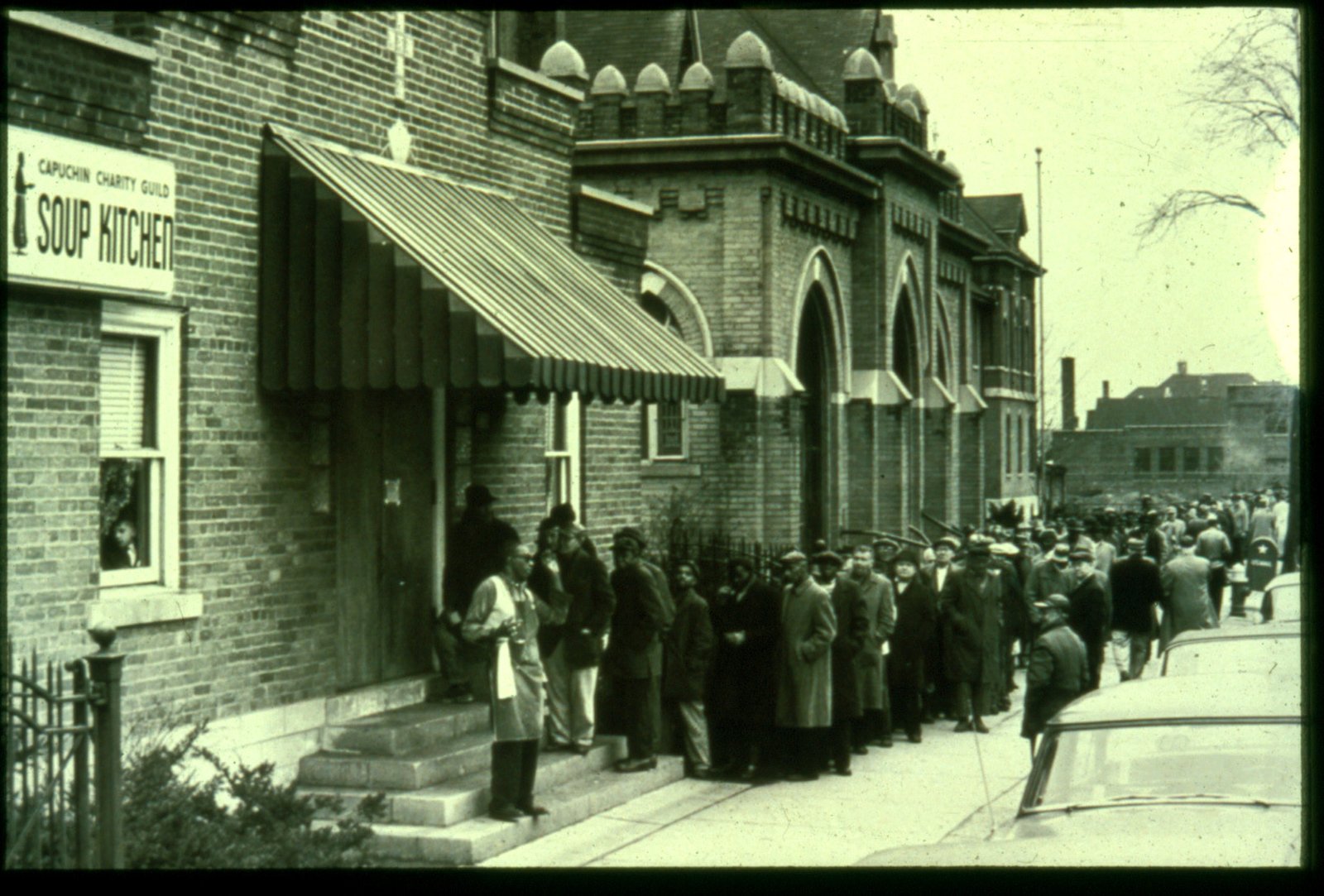
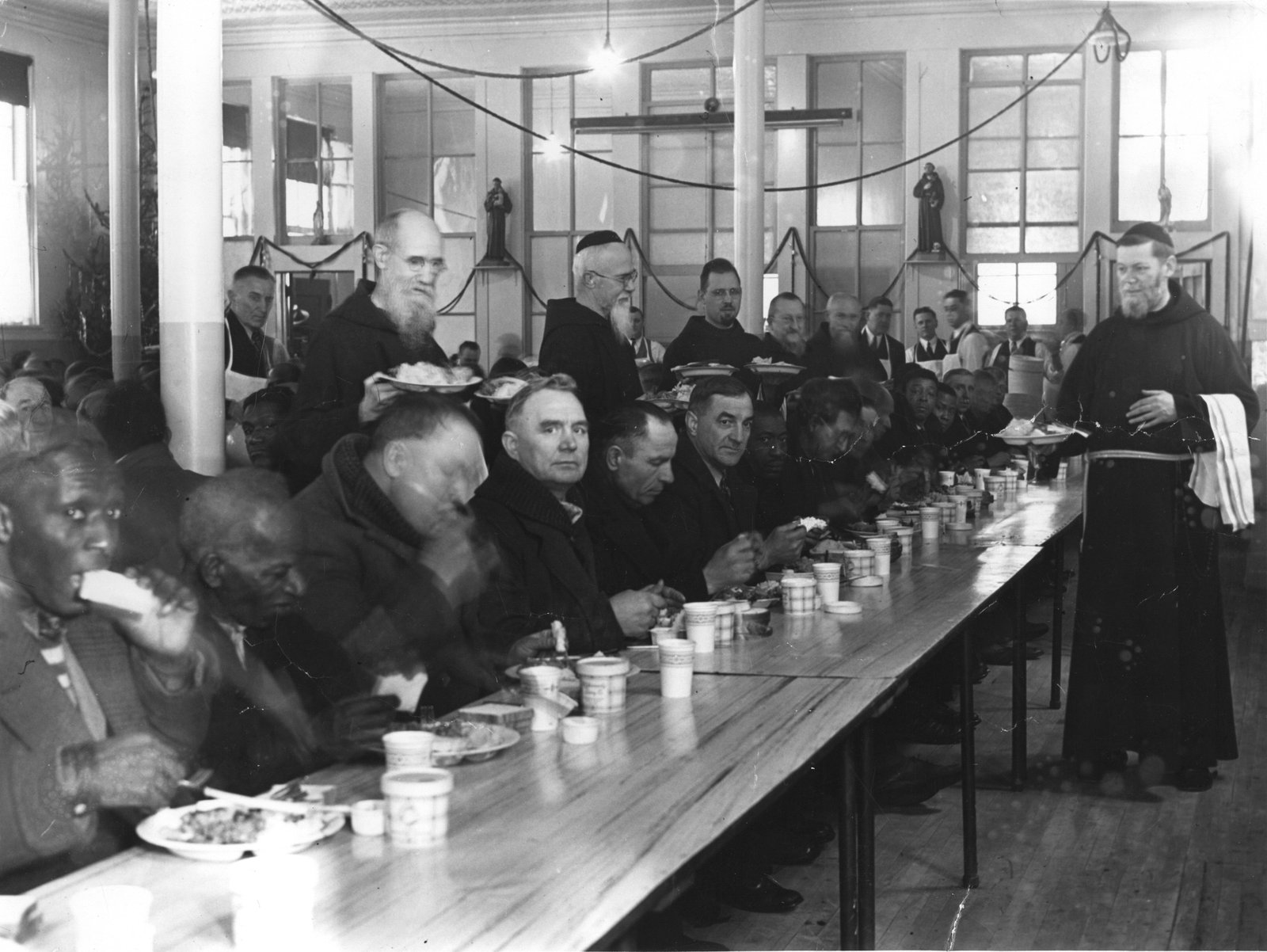
The soup kitchen, open Monday through Friday, 8:30 to 9:30 a.m. for breakfast, 11 a.m. to 1 p.m. for lunch and 4-5 p.m. for dinner, and Saturday breakfast, was never designed to be a place for guests to lounge and relax in between meals or stay warm and dry during inclement weather.
Bro. Wegner said the renovated kitchen will allow guests to be more comfortable staying after a meal, conversing with fellow guests, staff and volunteers. He wants the soup kitchen to feel more a part of the local community, even encouraging neighbors to bring their lunches and share a meal with the soup kitchen’s guests, a true community eatery.
“The dining room itself will be much more attractive,” Bro. Wegner said. “The architect said it (currently) reminds him of employee breakroom décor. We are trying to make it more appealing. I believe everybody deserves to be in spaces that are meant to uplift. When the place looks welcoming, looks dignified, people will want to stay.”
Beyond the kitchen and showers, the renovation includes offices for soup kitchen staff and outside agencies to use, common areas for people to meet, and space for local groups to use.
“It’s just going to be a nicer space with more windows and gardens outside. At one point, I’d like to have cement tables for guests to sit outside while they are waiting for us to open. Right now, we don’t have a place, so they sit at the church across the street (Second Evergreen Missionary Baptist)," Bro. Wegner said. "They don’t have a problem with it, because our guests are respectful. But it doesn’t seem to be the best place (for our guests to sit).”
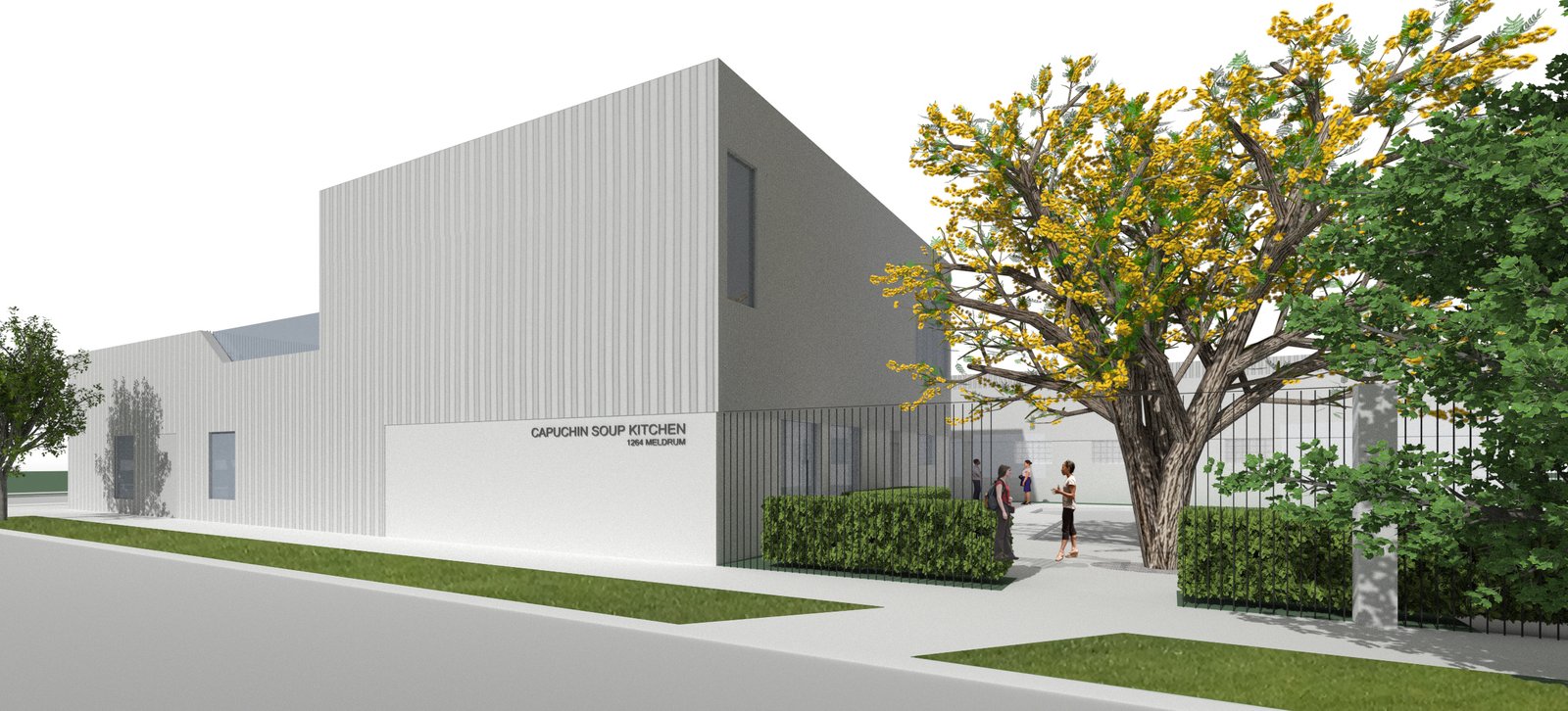
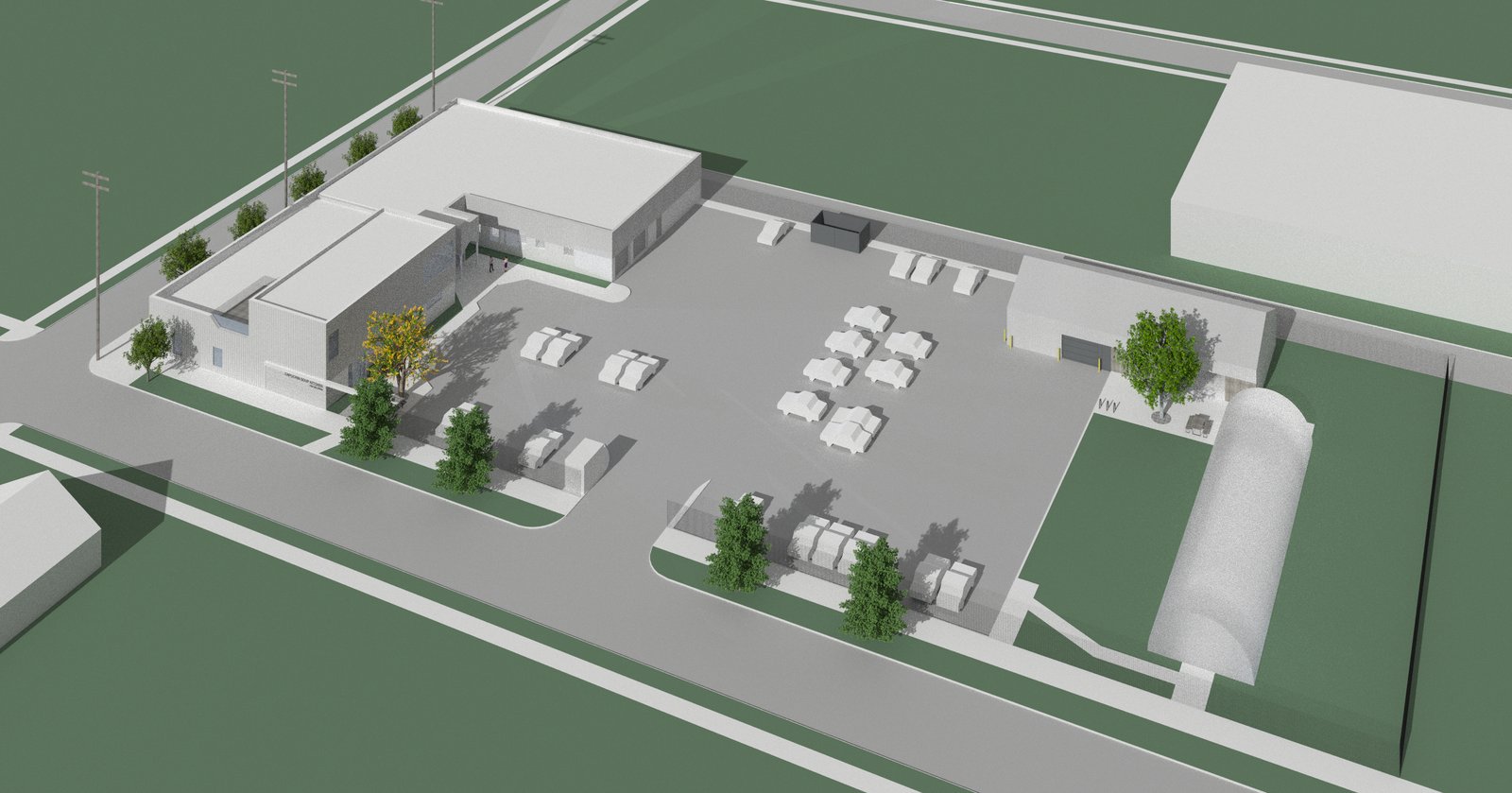
All of it is part of Vision 100 — a reference to the soup kitchen's 100th anniversary in 2029 — including planned renovations to the Capuchin Soup Kitchen’s Conner location. That work will include moving the entrance to the kitchen to Canfield Street instead of the much-busier Conner to make it safer for pedestrians and cyclists, and moving the Rosa Parks Children and Youth Program to the second floor.
The first step is completing the Meldrum location, which is expected to be finished by November 2024.
The $4.5 million project has been powered by a few major donors, but most of the fundraising has come from previous donors, whose contributions allowed the kitchen to begin the renovations.
The donations have been a sign of confidence in the work the Capuchin Soup Kitchen is doing, Bro. Wegner said, noting that donors often visit the kitchen and can see firsthand how the renovations will enhance its impact in the community.
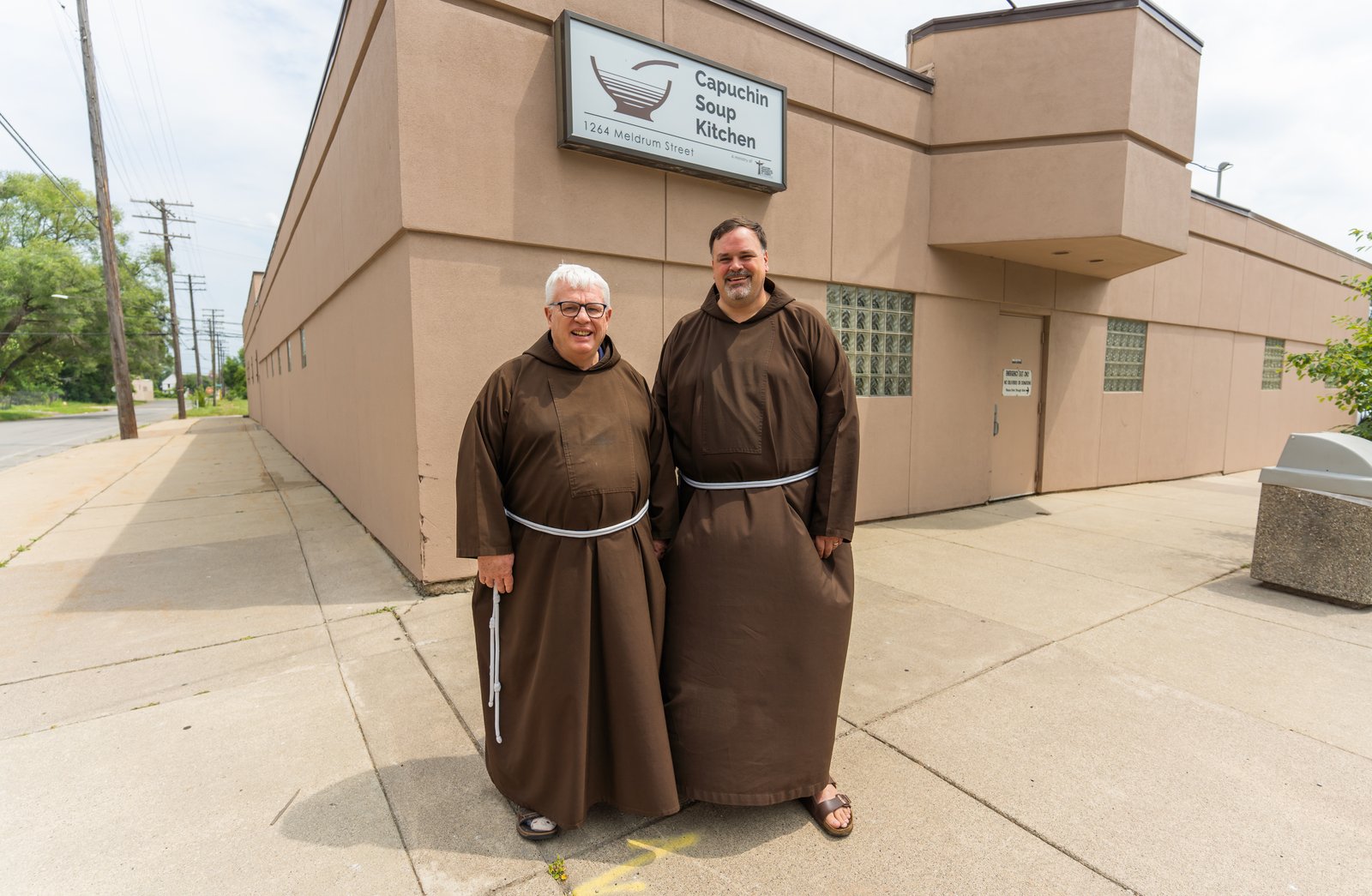
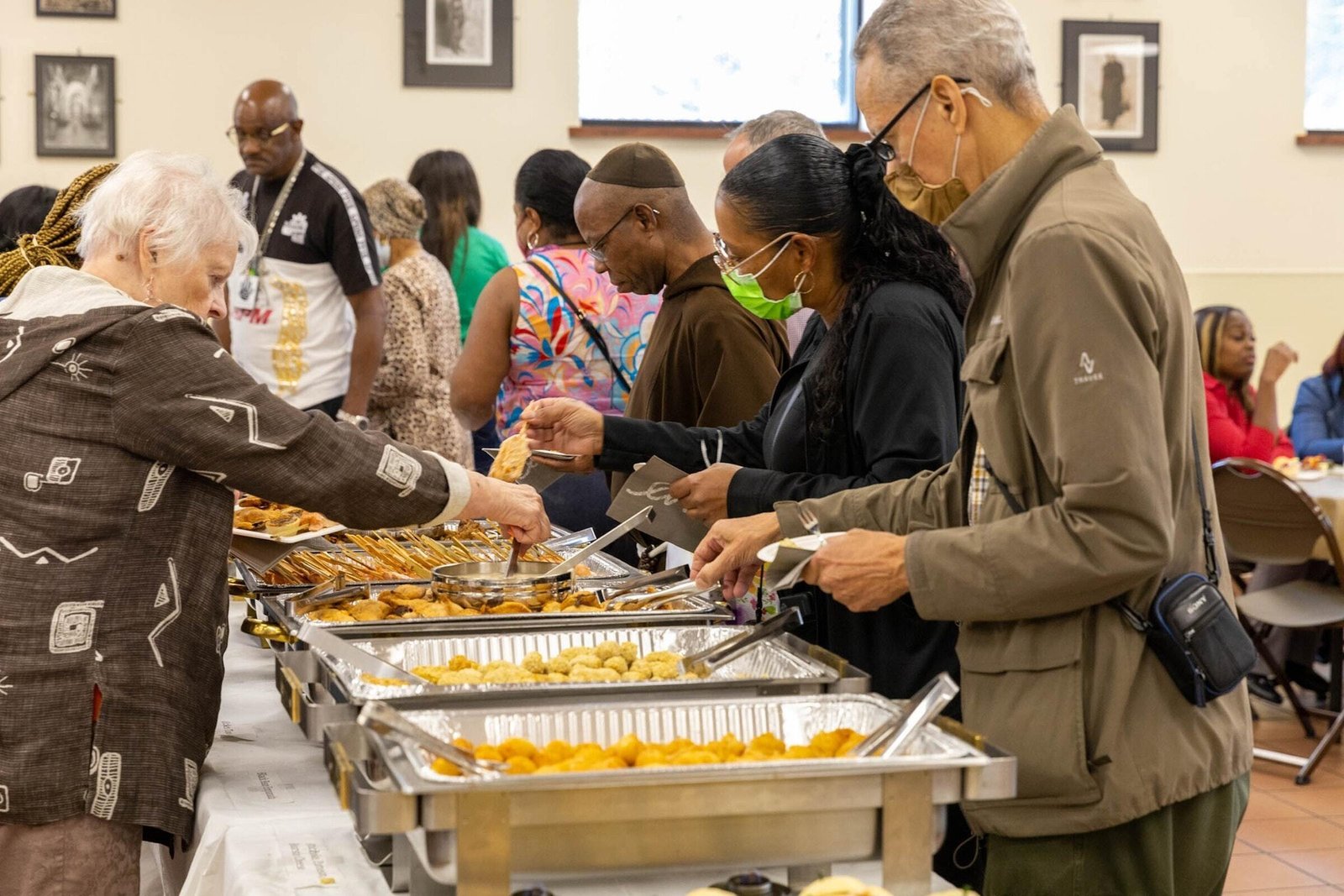
“I’m really grateful to our donors; we can’t do this without them,” Bro. Wegner said. “People continue to be very generous to us. We are in this chain of gratitude to generosity, generosity to gratitude, and gratitude to generosity. I hear this again and again. Our donors are grateful, and that’s why they are generous. It calls us to be grateful, and in turn, be generous.”
Since January, the Capuchins estimate they’ve seen a 48 percent increase in the number of guests they serve, due in part to the end of a COVID-era Supplemental Nutrition Assistance Program (SNAP) expansion that ended this year. Coupled with inflation, which has sent grocery bills soaring, more and more people are turning to the Capuchin Soup Kitchen.
The Meldrum site estimates 80-90 percent of its guests are chronically homeless or are lightly sheltered, while two-thirds of the guests at Conner are classified as the working poor, just one financial setback from being in ruin.
The need will always be there, Bro. Wegner said, and while the bills for each person vary, there is something everyone has in common: they all need to eat, and hopefully at a place where they are welcome.
“For the working poor, there are three needs: shelter, transportation and food,” Bro. Wegner said. “There are no car banks to go to, and if you have an apartment or a house, you need to make that rental payment. So what do people look to us for? The food bills. Because we can provide that. We can provide lunch or supper, but we can’t give people an apartment or a car. That’s why we’re here — we’re that lifeline and bridge, and we want people to feel comfortable here.”
Copy Permalink
Capuchins Christian service












